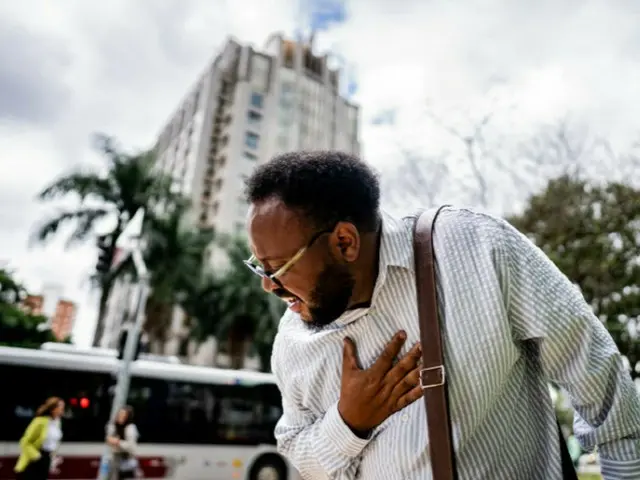Recently, according to local Indian media such as the Times of India,
Aiyar said that his colleague, Shaankar (40), with whom he had worked for six years, had messaged him at 8:37 a.m. on the 13th of this month, saying he had "severe back pain and needed to rest."
Aiyar, who approved Shaankar's sick leave as usual, was told the shocking news at around 11 a.m. on the same day. Shaankar had just applied for paid leave.
Unable to believe it, Aiyar looked up Shaankar's home address and headed to the scene, only to find him already cold.
The cause of death for Mr. Shaankar was a heart attack, which occurred at around 8:47 a.m., just 10 minutes after he had applied for leave.
He suddenly suffered cardiac arrest and lost his life. He was said to have led a disciplined life, not smoking or drinking alcohol.
Aiyar posted about the incident on his social media account, saying, "I realized how unpredictable human existence is," and "I hope to see the next
"No one knows what will happen in the next moment. That's why we should always be kind to others and find joy in the everyday."
Symptoms of a heart attack can be similar to simple fatigue, so if you miss the timing,
Symptoms include anxiety, sweating, and nausea, and pain that begins in the center or left side of the chest and can spread to the back or shoulder blades within 1 to 90 minutes.
It has also been pointed out that the lower back pain experienced by Shaankar may have been a precursor to a heart attack.
More than 70% of people experience warning signs several days or months before an attack occurs. One of these is a sudden feeling of pressure in the chest, which is caused by a lack of blood flow to the heart.
You may also experience symptoms such as your heart beating very fast and irregularly. You may also experience shortness of breath and drowsiness.
A drop in blood pressure or brain damage can lead to sudden death. Therefore, if you suspect you are having a heart attack, you should go to the hospital as soon as possible.
The "bad blood pressure" limit is four minutes. If the brain is deprived of blood for more than four minutes, brain cells begin to break down. Anything longer than 10 minutes increases the risk of permanent brain damage.
If a person loses consciousness due to a heart attack or other reason, call 119 immediately and perform cardiopulmonary resuscitation (CPR) until emergency personnel arrive.
It is said to increase survival rates by approximately three times.
2025/09/18 11:45 KST
Copyrights(C) Edaily wowkorea.jp 88

